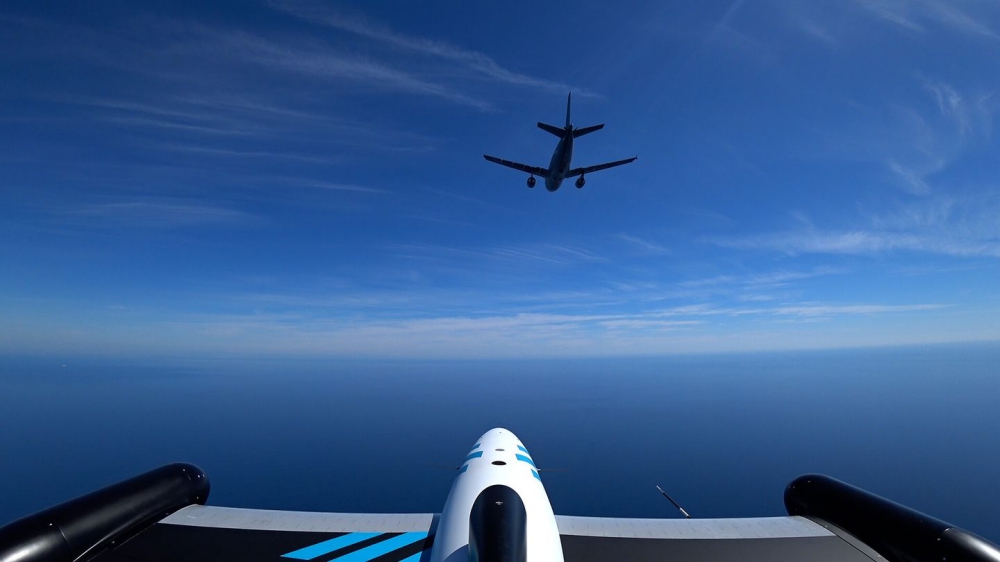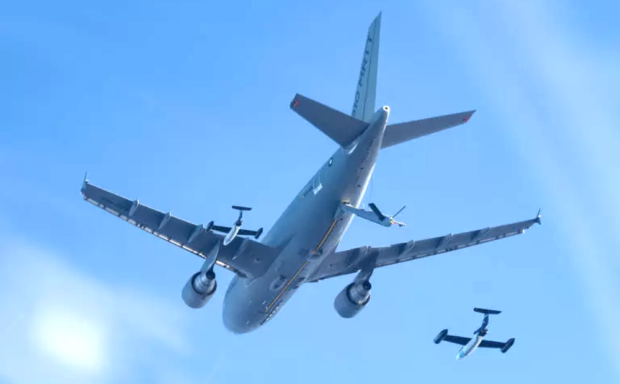Disruptive technology for fully autonomous in-flight refuelling – designated Auto’Mate – is being evolved by the Airbus Defence and Space business unit in collaboration with Airbus UpNext, the company’s wholly-owned innovation subsidiary. Airbus UpNext also is pursuing such cross-division projects as pilot assistance technologies to further enhance flight safety and aircraft operational efficiency, along with new propulsion systems and aircraft design to face sustainability challenges.
Last March, a successful Auto’Mate demonstration using an Airbus testbed tanker aircraft and four unmanned drones marked a major milestone for the autonomous in-flight refuelling capability.
During a second flight test campaign conducted in November 2023, the Auto’Mate demonstrator showcased the potential of Autonomous Assets Air to Air Refuelling (A4R) operations flying with five unmanned drones (Airbus DT-25, two of them being digital twins) – under the control of an A310 MRTT tanker – simulating a refuelling operation, using advanced AI-based relative navigation and cooperative control technologies.
Enhanced Safety, Reliability and Efficiency
By automating in-flight refuelling without the need for human intervention, an aerial tanker can take control of a “receiver” aircraft from several kilometres away and autonomously guide and control it into the proper position to receive fuel, followed by the actual fuel transfer via the tanker’s refuelling probe, completed by a safe separation manoeuvre at the operation’s completion.
The in-flight refuelling procedures utilised today require demanding and precise coordination between an aerial tanker’s crew and the pilot of the “receiver” aircraft. By applying autonomous technologies, the process will benefit from enhanced safety, reliability and efficiency. Other advantages are the ability to conduct more effective operations – including the transfer of fuel in very low visibility conditions, and the reduction of training costs for flight crews.
As importantly, the Auto’Mate technology opens the way for aerial refuelling of non-piloted combat air vehicles such as drones, apart from the technologies reuse in remote carriers and “loyal wingman”operations – which are key unmanned elements of Europe’s Future Combat Air System (FCAS). Furthermore, thanks to Auto’Mate technology, the whole refuelling operation can be carried out seamlessly without the need for human intervention, neither by the Aerial Refuelling Operator (ARO) on the tanker nor by the manned receiver’s pilot or the unmanned drone’s operator. This could eventually lead to autonomous tankers and aerial assets operating without a crew on board in the future.


